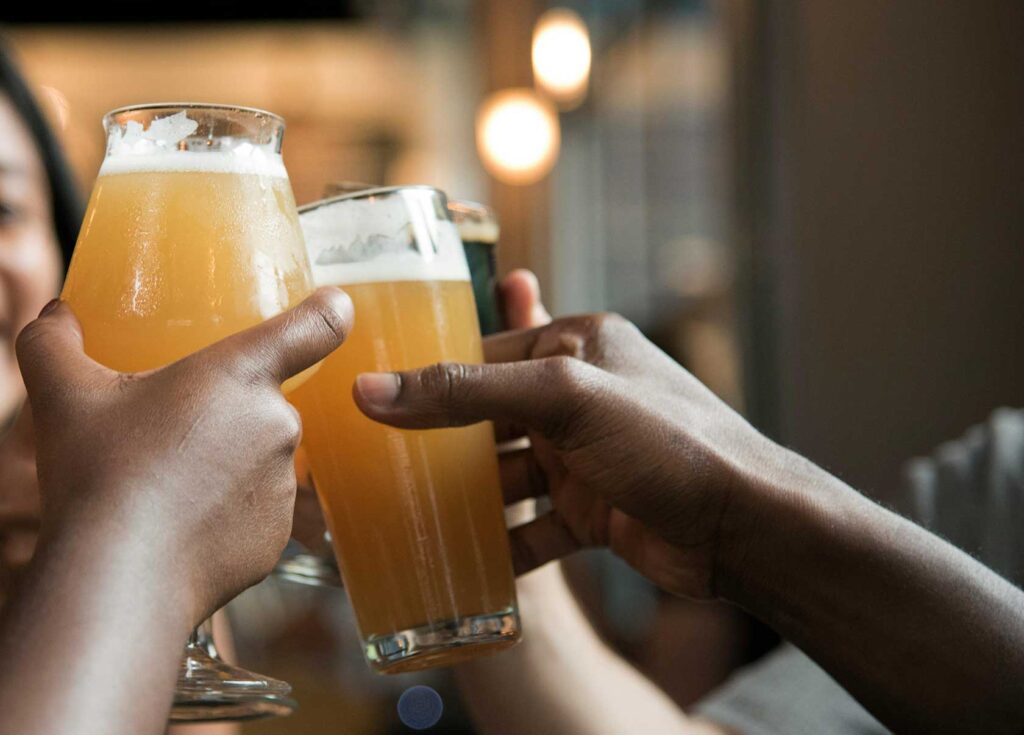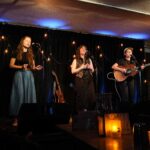
A long-awaited bill that would create more than 200 new liquor licenses in Boston passed through the legislature Sept. 5, after a stall at the end of the legislative session left its future in question.
The bill, introduced in the legislature in April 2023, passed through both chambers of the State House by the end of July, but with prominent differences between the two versions. Those weren’t reconciled by the end of the state’s official legislative session on July 31, leaving it one of a handful of bills left in legislative limbo.
The newly passed bill leaves logistical questions about how the city will shift in response, but Royal Smith, who runs the District 7 Tavern in Roxbury and is a part of the Boston Black Hospitality Coalition that has been pushing for the legislation, said he sees a lot of potential for the food and drink industry in Boston’s communities of color.
“I’m excited to see the form that it takes,” he said. “This, really, is truly going to grow the city. It’s going to provide neighborhoods that people want to go to.”
Assuming Gov. Maura Healey signs the legislation — Smith is holding his breath until it’s signed and official, he said — each year, for three years, five restauranteurs in each of 13 zip codes predominantly in Black and Brown communities in Boston will be eligible to get new liquor licenses for their businesses, eventually totaling almost 200 new licenses in those parts of the city. Annually, two licenses in each zip code will cover wine and beer only, while the other three will be all-inclusive full liquor licenses.
The licenses, which will be restricted to each zip code and will be returned to the city if the business closes, will go to zip codes in Roxbury, Dorchester, Mattapan, Hyde Park, East Boston, Roslindale, Charlestown, Jamaica Plain, West Roxbury and the South End.
It’s a move that its supporters say will help bolster the restaurant industry in those neighborhoods, increasing access for the city’s residents who may not currently have nearby choices for sit-down dining.
“Regardless of where you live in the city, you should be able to go downstairs or down the block and be able to get a good meal and get a cocktail if you feel like it,” said state Sen. Liz Miranda, who sponsored the bill in the Senate and whose district, the 2nd Suffolk, includes parts of nine of the zip codes covered by the legislation.
Supporting sit-down restaurants
While the bill officially brings liquor licenses, Miranda said it’s not about bringing booze to communities, but rather about supporting sit-down restaurants, often hard to sustain without alcohol sales, in neighborhoods that have seen decreasing access due to rising costs for transferable liquor licenses, which can often go for around $600,000 on the secondary market.
Part of the new legislation requires that recipients of the licenses also hold a food establishment permit and prepare food.
“This is about dreams becoming reality, and about economic, racial and geographic equity,” Miranda said. “I think sometimes people get stuck on the word liquor, and if you don’t like liquor, you think that this is going to cause a lot of problems in our community, but it is not.”
The revitalization is also aimed at places she said have seen the greatest loss of restaurant access in the city.
She pointed to her own experience. Growing up in Roxbury, she said, she saw all sorts of sit-down restaurants along Blue Hill Avenue.
“Blue Hill Avenue in Roxbury all the way through Dorchester, to Mattapan, to Hyde Park, was our cultural mecca in our neighborhoods,” Miranda said. “There were successful neighborhood restaurants and nightlife all up and down Blue Hill Avenue.” Miranda said.
By the time she was 21, there were only a handful, she said. Now, there are five along the four-mile stretch.
Restaurateur Smith said he hopes that the legislation will bring more opportunity to Boston’s Black and brown neighborhoods, and said he thinks it is “truly going to grow the city” and diversify the offerings.
“There’s going to be more options in Boston besides Irish bars,” he said.
The final bill that passed out of the conference committee — the group of three senators and three representatives tasked with resolving differences between the versions of the bills passed in each chamber — sets aside 225 new licenses in Boston.
Of those, 213 will be non-transferable, with 195 of those restricted by zip code, 15 reserved for arts and nonprofit organizations citywide, and three set to go to Brighton’s Oak Square area. The other 12 will add to the city’s tally of transferable liquor licenses — those that can be resold by the people who hold them.
The total is higher than the 205 in the House version of the bill, but lower than both the 250 in the legislation as it was initially filed and the 264 in the version passed by the Senate. The original legislation looked to create new licenses annually over five years, which was reduced to three years; the Senate’s version looked to give out a fourth all-inclusive license to each of the zip codes in each of the three years.
Smith said that although the legislation has changed from how it was originally filed, he’s excited to see the potential changes it can bring.
“I’m a big fan of giving these things chances. If we don’t give them chances, we don’t know,” Smith said. “Yeah, we didn’t get the five [years], we got the three, but now we also have the blueprint if and when we get in this situation again.”
Also changed in the Senate’s version but kept in the compromise bill that came out the conference committee, was the inclusion of an additional zip code. When the bill came to the Senate, it included 12, but Miranda said they added the 02118 zip code, which spans the northern end of Roxbury and much of the South End.
She pointed to the area’s legacy as a community that historically was the home of a Puerto Rican community and large Black population.
Getting the legislation passed is only the first step, Smith said. Once signed, the real work starts, with a need for increased education and information to make sure that community restauranteurs know that the opportunity exists and how to approach it in a way that makes their work sustainable.
“We just want to make sure that for anybody that is affected by this bill, we’re not just opening places to close them. We want sustainability,” he said. “Ultimately, if this thing is done right, this thing will change the skyline of Boston.”
The process to get to this point was an extended one, Smith said, with leaders across different levels of government passing the baton over the past two and a half years from City Hall, where it began as a home rule petition, to the State House and to the governor’s desk.
Miranda said she is grateful for the continued support for the legislation from the community and across levels of government, support that allowed the bill to make it through, even after the official legislative session ended.
“This was all-hands-on-deck,” Smith said. “This just shows how, when working together, community can achieve good things, and with proper representation, we can change Boston.”






